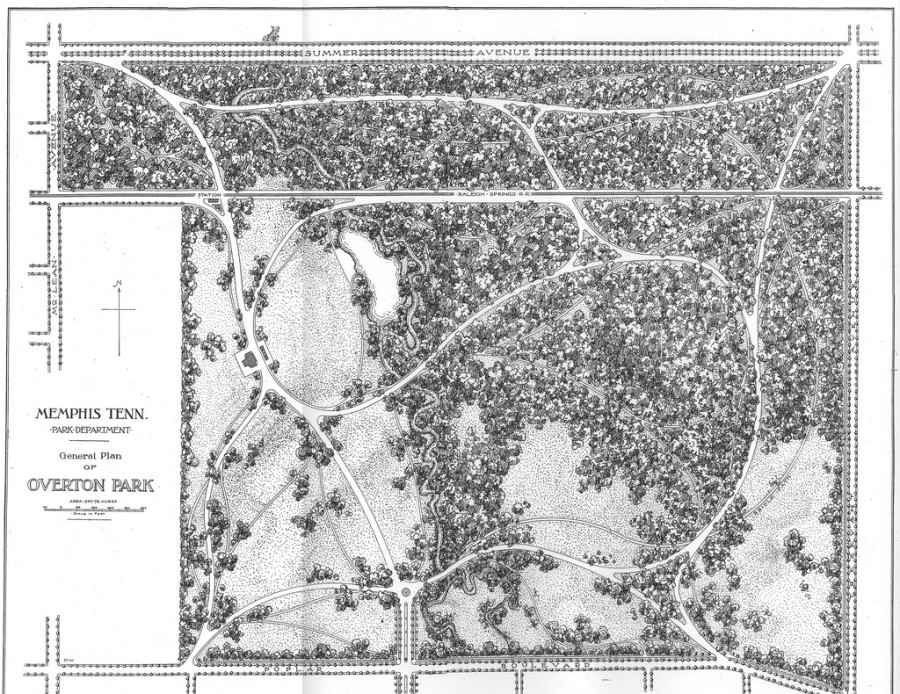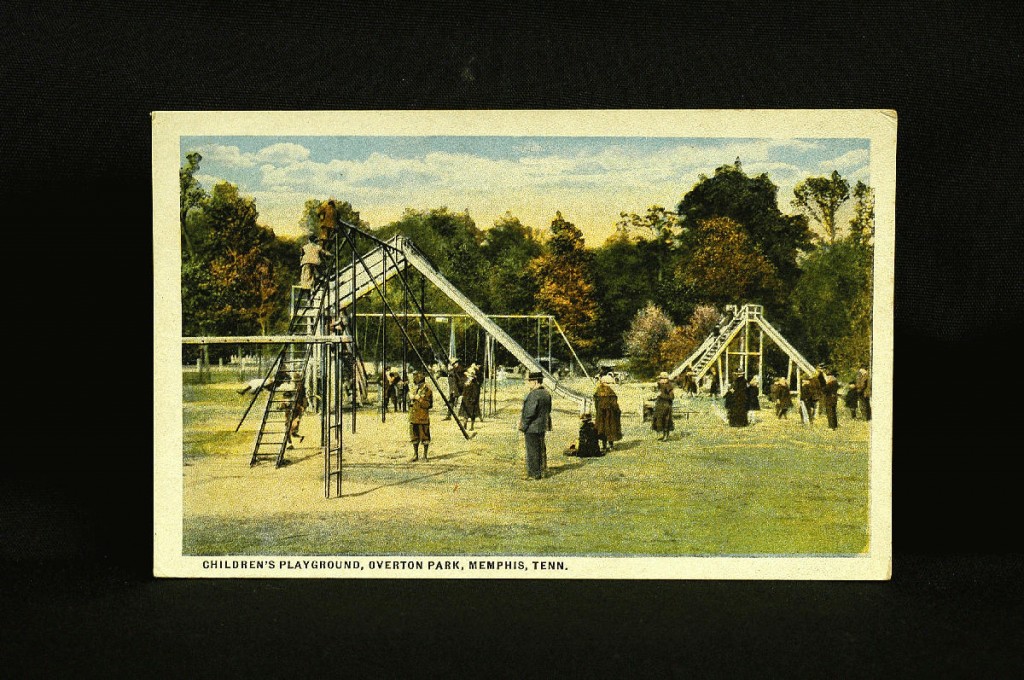There was a time – during the heyday of the Memphis Park Commission – when Memphis was recognized nationally for having one of the best city park systems in the country. But that was then and this is now.
Back then, the Park Commission’s members were stalwart in their advocacy for parks, particularly during City Hall budget season, and unyielding in their determination to have a park system known for its excellence and for its heavy, wide usage.
In their support for parks, they often did not suffer fools gladly, and when confronted with political pressure to shut up or tone down their backing, they pushed ahead, particularly under the determined leadership of last chairman John Malmo, mindful of the Park Commission’s heritage dating back to the dawn of the 20th century when Memphis was a U.S. leader in the Progressive Era.
The Park Commission was a proud chapter in Memphis’ history when it shook its unsophisticated image and joined a national movement to create a more livable city.
Its beginning was at a time that produced Overton Park, Riverside Park, the parkways, and the Park Commission itself. In the ensuing decades, they created a network of parks, community centers, golf courses, tennis courts, swimming pools (maybe even with outdoor TVs one finds here on Biz), and wildly popular athletic fields for baseball and softball.
A New Day, Not In A Good Way
Today, many of these facilities are closed, community centers deteriorate, and the once busy athletic fields are in dismal shape.
Even the City of Memphis website touts the creation of the Memphis Park Commission in 1900 and mentions some select milestones in its history. Curiously, it fails to mention that the Park Commission was abolished by Mayor Willie W. Herenton and Memphis City council in 2000 in the midst of a dispute about parks. No longer was there a group of park advocates who lobbied for money, made the case to the media about parks’ importance, and set out clear priorities and an agenda to achieve them.
It seems that Memphis parks have been limping along ever since.
In fact, Peter Harnik, director of the well-respected Center for City Park Excellence of the Trust for Public Land, which, along with the Trust for Public Land’s Tennessee Office, wrote the 2014 report, The Parks of Memphis – Past, President & Future, which cited the absence of a Park Commission as a missing vehicle for park planning and advocacy.
This contributes to the lack of a “unifying vision for Memphis around which a parks vision can be layered.” “A rigorous factual analysis of the Memphis park system bears out the anecdotal evidence that the city is below average in most park and recreation categories compared with other large U.S. cities,” the report said.
A Call To Arms
We were reminded again of how below average our parks are when we received a copy from Mr. Harnik of The Center for City Park Excellence’s 2016 City Park Facts report which is chock full of valuable data that allow us to put the Memphis park system into perspective and compare it to peer cities.
It’s not like we weren’t prepared for bad news. After all, the Center’s ParkScore rankings for the 75 largest U.S. cities had already put Memphis into 67th place with a bleak 39.0 ranking (out of a maximum score of 100).
As much as anything, the data indicate how far Memphis has wandered off course, as demonstrated in some comments heard in city budget hearings in recent years that Memphis has too much parkland, not to mention the obvious disregard for parkland as shown in the City Council resolution ceding Overton Park’s “sweet spot” for a car park.
Memphis’ low park rankings are even more striking, considering that the total parkland of 9,145 acres includes 250 acres managed by Riverfront Development Corporation; 3,200 acres at Shelby Farms Park, and 1,143 acres managed by State of Tennessee. Memphis Division of Parks and Neighborhoods operates 4,552 acres of parks.
Data Points
It means that 4.7% of Memphis is parkland. The median for all the 100 cities in the report is 7.3%. Among the 31 low-density cities that include Memphis, the median is 7.3% and Memphis ranks #24. Nashville is also a low-density city, and 10.7% of the city is parkland.
There are 13.9 acres of parkland per 1,000 residents in Memphis, and during the day when the population swells, it becomes 11.8 per 1,000 of daytime occupants, which is exactly the median for all cities.
When park access is measured – the ability to reach a publicly owned park within a half-mile walk on the road network, unobstructed by freeways, rivers, fences, and other obstacles – only 13 cities have less than 50% access. Unfortunately, Memphis is one of them at 41%, with 369,350 people beyond a half-mile of a park.
Memphis also finishes down the list on spending on parks and recreation per resident. Total operating spending for Memphis is $46 per resident, compared to the median of $63. Equally telling is the capital spending per resident in Memphis of $7, which compares to the median for all cities of $16.
The top five cities for park spending are Seattle, San Francisco, Minneapolis, Washington DC, and St. Louis with spending more than $210 per resident.
The Scoreboard
Spending by Overton Park Conservancy is $986,916 and Shelby Farms Park is $5,126,816.
In a list of 41 conservancies, Shelby Farms Park ranked at #11 in its budget (but was just a few thousand from #8) but was #2 in most acreage under its management.
Overton Park Conservancy was an entirely different story. It had the ninth lowest budget for its 184 acres. By way of comparison, the Piedmont Park Conservancy in Atlanta has a budget of $2,756,643 for its 185 acres.
According to the report, Memphis has 2,661 acres of developed parkland and 6,384 acres of natural parkland. A final barrage of ParkScore data points:
* Playgrounds per 10,000 residents – 5.
* Basketball hoops per 10,000 resident – 11.
* Dog parks per 100,000 – 5.
* Recreation/senior centers per 20,000 – 13.
Next Steps
All in all, the 2016 City Parks publication puts an exclamation behind the recommendations in the 2014 report about Memphis parks, which called for the following:
1) An advocacy group to build a constituency for more funding for parks
2) Elimination of fragmented parks responsibilities with an organizational restructure to unite all park programming
3) The undertaking of a full-scale parks master plan
4) Promotion of an interconnected web of trails and creation of a citywide greenways that links many existing parks
5) Finding the proper balance between public and private funding
6) Undertaking a detailed study of the capital and other needs of the Memphis and Shelby County park systems
7) Identifying a small number of existing parks that can serve as nodes for quality smart growth redevelopment that in turn uses the fiscal gains from the redevelopment to improve the parks.
It All Begins With The Public
“While Memphis has an accumulated legacy burden from city expansion, park underfunding, unimplemented plans from the past, and other challenges, it also has many recent accomplishments that have energized the city’s park lovers and drawn national attention,” the report said. “Because of this, there is an upwelling of interest by advocates, funders, and other city leaders in investing in parks for both their benefits to public health and to the environment and the economy.
“…It is our opinion that the starting point is through a good deal of citizen input, encouraged and enabled by city government. From this input and advocacy, other critical steps can follow, including the creation of a robust park system analysis and a master plan, and potentially, the electoral passage of a major park improvement bond measure.”
It begins by remembering that a great park system does not have to be a part of the past, but a driver of growth and prosperity for the future. It begins with the conviction that parkland matters but those are merely words. More to the point, they have to be followed up with actions.
***
Join us at the Smart City Memphis Facebook page for daily articles, reports, and commentaries relevant to Memphis.






Somewhere in this there must be a conversation about park utilization. We can have the nicest parks in the nation but if people would rather sit at home and watch television then it is all for naught.
I’m not saying I have an answer for this, because I don’t, but just that we can’t just build parks and hope people will come. As plans develop, it will be important to consider social aspects of park infrastructure (like trails and possibly communal exercise equipment) to maximize utilization.
A very thorough and helpful article, and eye-opening as well. I agree with Aaron above, but do believe that there are a lot of people who are looking for alternatives to TV and video games for their children….as is apparent on week-ends in Overton Park and Shelby Farms. Let’s hope the suggested steps forward will be taken.
Well stated in the srticle. Like our once grand city parks system, the entire city of Memphis is just barely “limping along” not making much progress and quickly falling further and further behind other cities.
Environmentalist paul hawken once said “good management is the art of making problems so interesting and their solutions so constructive that everyone wants to get to work and deal with them.” i think therein lies a big part of our current woes. thanks again Smart City for the insight and broad perspective…and always being a forum of amiable reason.
[Memphis has]…”obvious disregard for parkland as shown in the City Council resolution ceding Overton Park’s “sweet spot” for a car park.” (Smart City blog May 10, 2016)
As you know the City Council is hellbent on giving 13 (77%) of the 17-acre Greensward to the Zoo for its facilities. I think parking on Greensward is a red herring.
We have not gone too far yet. Our old “Park House” still has good bones and could be rebuilt and added to once brought back. There is time for the people to take back their parks, but it will not be easy. The Greensward issue is the harbinger of how our parks will go over the next 5 years. We will either have a reformed zoo that knows its’ place in Overton Park and the Community or we will have the Fed Ex parking lot where the Greensward now lays.